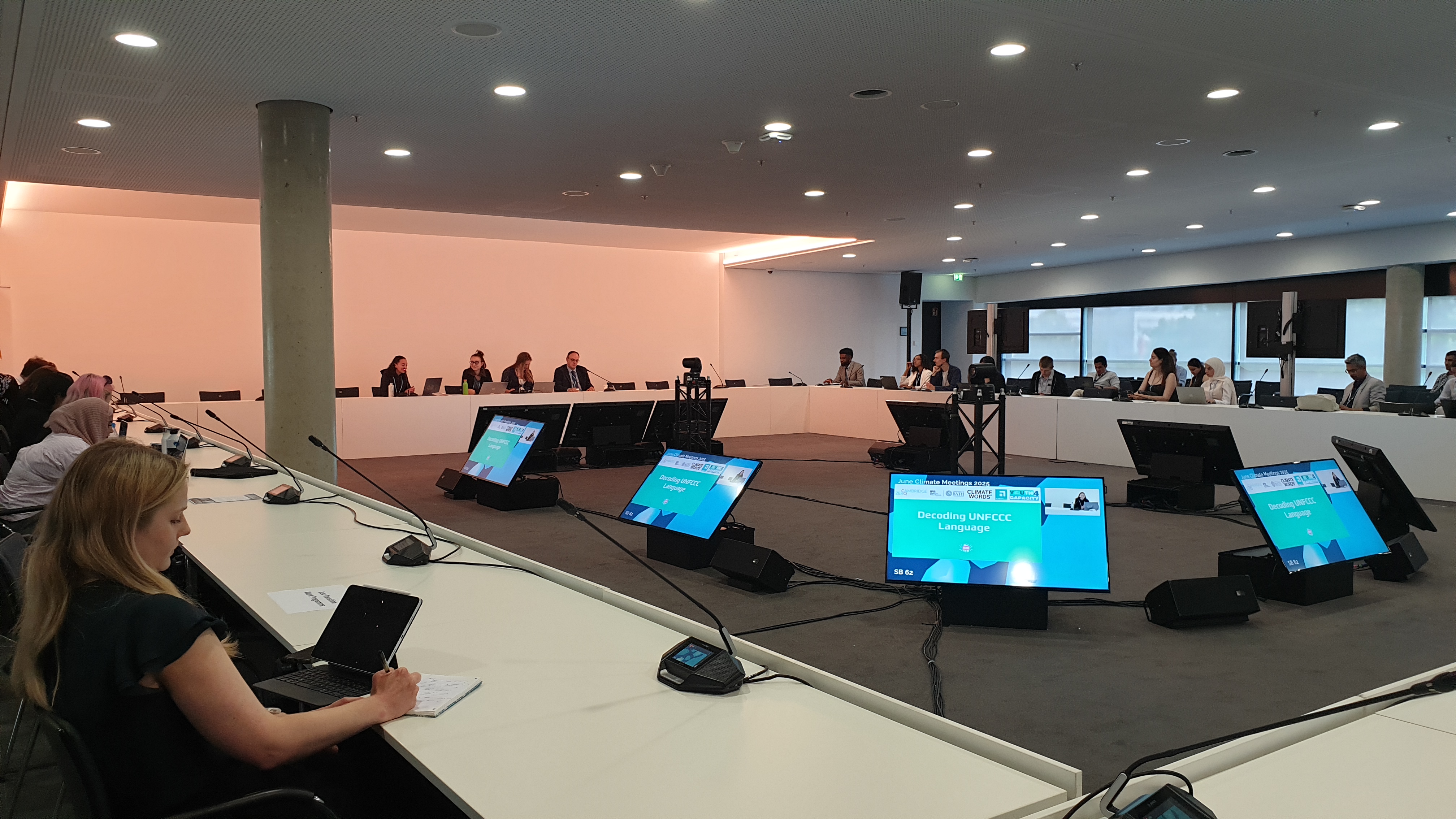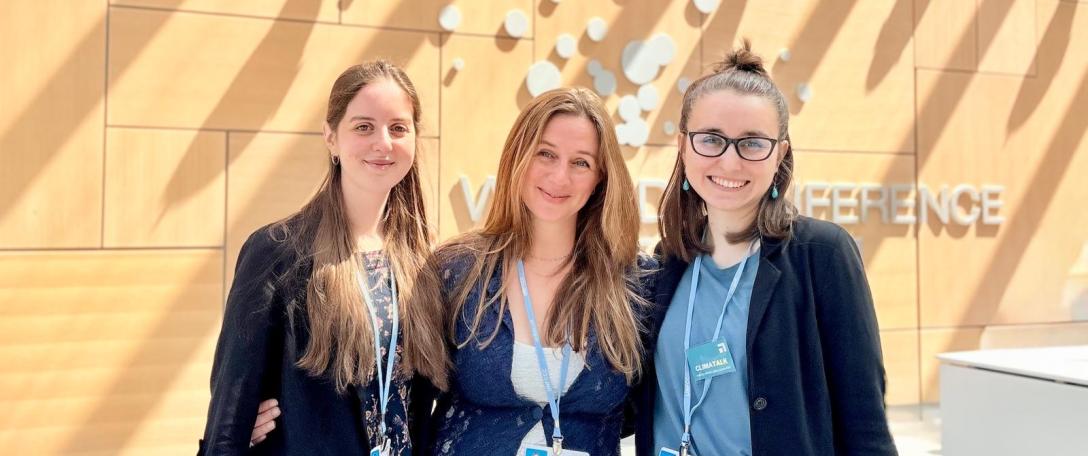By Annie McKenzie, Cambridge Zero
Climate change education experts led by the Universities of Cambridge and Bath gave aspiring youth leaders around the world a crash course on the unique language and processes that negotiators use when discussing the global policies needed to halt the devastating effects of a warming world.
“Global weirding”, “deep decarbonisation” and “just transition,” are just three of the many phrases which Cambridge Zero, ClimaTalk, Climate Words, and the University of Bath Institute for Policy Research (IPR) helped to decode for some 70 youth participants at the UNFCCC climate conference in Bonn, Germany (SB62).
“After attending five COPs and many international conferences, there has never been a session like this one - explaining complex concepts in such simple words,” said Benjamin Carvajal from Chile. “I would love to have had this session five years ago.”
The third iteration of Decoding UNFCCC Language at SB62 in Bonn, attracted some 70 youth participants from all over the world, representing a diverse range of countries, cultures, and backgrounds, all united by a shared commitment to engaging with and understanding the international climate negotiation process.
“It was very special to be at SB62 in Bonn to deliver the third iteration of our Decoding UNFCCC Language session. More than half of our youth participants had never attended a COP or SB meeting before,” said Cambridge Zero Head of Education and Student Engagement Amy Munro-Faure, who led the session.
The session aimed to demystify the complex and often inaccessible language used in international climate negotiations. The group was first introduced to key climate terms, which uncovered surprising gaps in familiarity.
For example, while 42% of attendees believed they understood “deep decarbonisation,” 81% had never heard the term “global weirding” - a phrase used to describe the unpredictable and extreme patterns of weather linked to climate change.
Participants found the session especially helpful in orienting themselves within the technical language of the UNFCCC, whose full name is the United Nations Framework Convention on Climate Change. That body holds the COPs (Conference of the Parties) every year where nations negotiate global climate policy and also smaller meetings in Bonn where the SBs (Subsidiary Bodies) meet. Tanushree Jain from India said:
It was a useful session in terms of getting the youth present at SB acquainted with the terminology and complex words associated with the UNFCCC process and getting to know the process better.
Some of the central focus was on unpacking the term “just transition,” a widely cited yet often differently interpreted phrase in climate discourse. Small group discussions allowed participants to define the term for themselves, then share their insights with the wider group - encouraging understanding of how such language may resonate differently across cultures and disciplines.
The session’s technical component, led in collaboration with ClimaTalk, offered participants a unique look into how verbs in climate treaties - such as “shall,” “should,” and “may” - signal varying levels of legal obligation. For many, this was a revelatory moment.
The session closed with a powerful multilingual exercise in which participants said “intergenerational climate justice” in their native languages, including French, Portuguese, Arabic, Swahili, and others - highlighting the global and inclusive nature of the climate movement.
By building clarity and empathy around technical language, this session offered a valuable foundation for the next generation of climate negotiators.


